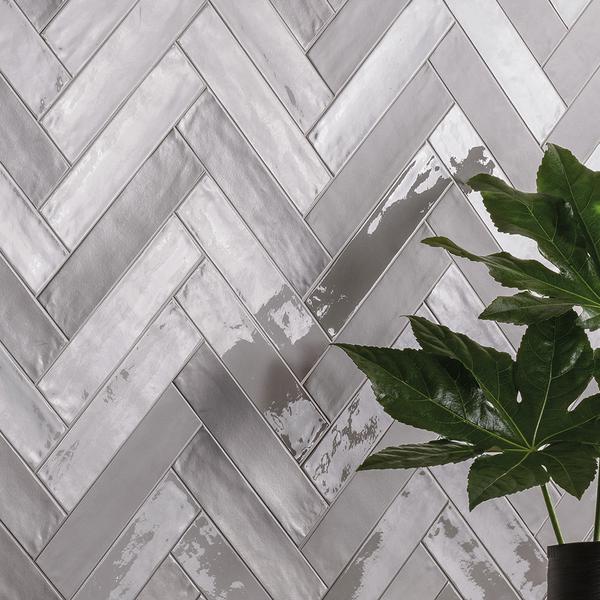Totalook: interview with the designer
What is the ideal countertop slab size? In this article, we look at everything you need to know about one of the most useful pieces of furniture for your home.
First of all, the countertop is a worktop. In an environment such as the kitchen, for example, it is the surface used for cooking, washing, cutting and all those actions that require a large space on which to operate. It is often inserted into the room as an island or peninsula, can include sink and cookers or can be a clear surface that provides all the space needed to work.
The countertop, or more simply top, can also be found in the bathroom and its function is the same: a surface on which to place objects, insert the sink and perform everyday actions.
Given its strategic use, it is good to know all the options available to choose the best one: both in terms of size and material used.
The tile world is moving towards larger and larger sizes. Opting for a large size of a countertop slab is the ideal choice thanks to its aesthetic impact, the great versatility of use and the optimal technical characteristics.
According to UNI 11493 standard, large slabs are defined as those with a side greater than 60 cm. Nowadays, slabs in the 160x320 cm size are commonplace.
Of the large sizes, this is the most commonly used for kitchen or bathroom countertops. Other sizes that can be used are 120x240 cm or 120x278 cm. The porcelain stoneware slabs produced can be as large as 180x600 cm, although this is a definitely impractical size that is little used in a home environment.
In addition to length and width, it is also good to know how thick a counter slab is.
The same thickness can be used to make slabs of different sizes and, usually, the sizes used are:
Greater thicknesses are mainly used for floor claddings, as it is necessary to install a material that is very resistant to both weight and impact. A slab that can withstand scratches and blows is also required for the countertops, but the weight it has to bear is much lower than that caused by people walking on it.
Once we have analysed the measurements and thicknesses of large-size slabs, which are optimal for countertop design, let's look at the materials that can be used to make the worktop.
Porcelain stoneware is the best choice for countertops because it avoids all the drawbacks of using other typical materials such as quartz, granite and stone. In addition, the technology used in the production of these slabs makes it possible to recreate the effects of the above-mentioned materials, guaranteeing a decidedly high-quality aesthetic result.
Porcelain stoneware encompasses all the necessary characteristics for a kitchen or bathroom countertop: resistance to heat, impact and scratches, water repellency and a high level of hygiene. Finally, the versatility of this material allows you to combine the countertop to the design and style of the rest of your home.
Quartz is one of the materials used for countertop slabs. The standard quartz slab size is 130x310 cm.
Although aesthetically pleasing, this material has drawbacks if care is not taken when using the countertop - contact with hot surfaces is one of the most frequent. Quartz slabs are not heat-resistant and, consequently, actions such as placing the pan just removed from the fire on the worktop could ruin it or change its color.
Furthermore, quartz is not a completely waterproof material and oily materials, acids or ink may seep into it. Another element to be considered is that deep cleaning of the material requires special attention; after surface cleaning, a stained quartz surface requires a restoration of the stain protection using special products.
Granite is another of the materials used for countertop production and installation. The size of a granite slab is, on average, 200x150 cm and the thickness is variable.
Like quartz, granite also has disadvantages due to the fact that it is a very fragile material. Chips and scratches are very frequent already during installation and its maintenance is very complex. Moreover, being a natural material, it has a slight porosity. This contributes to the creation of stains if the slab comes into contact with oily and greasy substances. Granite, however, is one of the most popular options for a floor without joints, i.e. the space between one tile and another. A granite slab without joints can be as large as 280x340 cm.
After quartz and granite, let's find out what the sizes of a stone slab are. These sizes, like the other examples analysed, are also very large: they can exceed 3 metres in length in industrial applications.
Sintered stone is much more resistant than natural stone. During the sintering process, the slab is processed with different aggregate mixtures, which guarantees high technical performance.
However, stone is a material that tends to absorb odors and, consequently, lends itself poorly to an environment such as the kitchen. Moreover, it is easy to stain, so maintenance operations may be frequent.
After having seen how large countertop slabs are and which are the most common materials for making a worktop, we can conclude that porcelain stoneware is the ideal material. Design and resistance in all finishes guarantee an outstanding result aesthetically and technically.
Emilgroup offers a wide selection of slabs in large sizes ideal for kitchen and bathroom countertops. Among the various collections, we cannot fail to mention:
Moreover, all these Emilgroup products are NSF certified for food contact, guaranteeing beautiful, hygienic and high-performance large-sized slabs.
08 February 2023
From our blog
